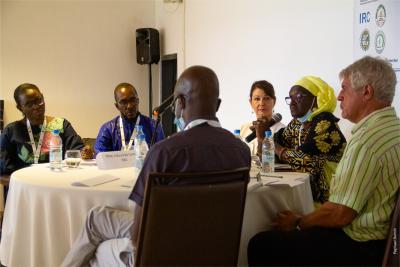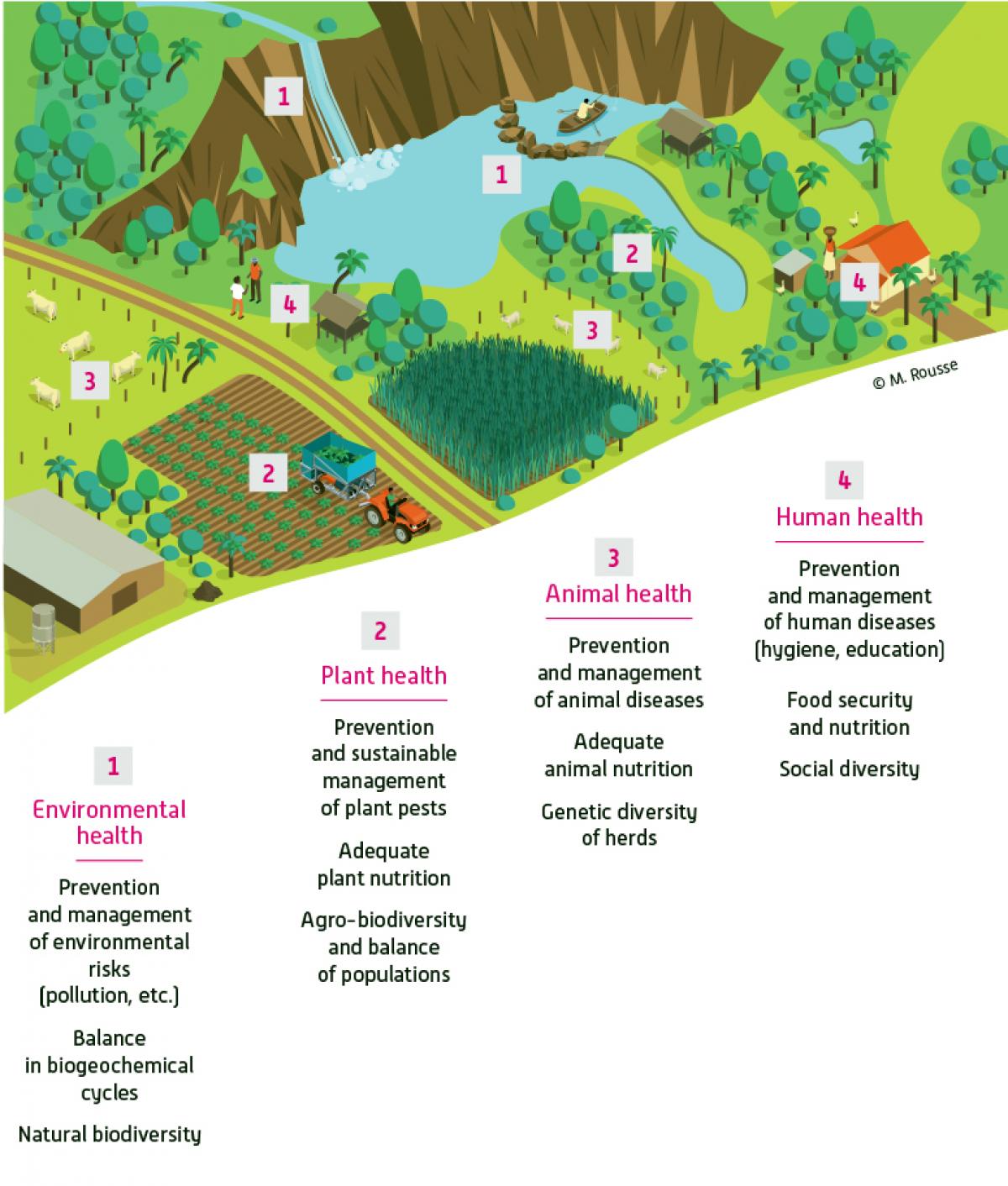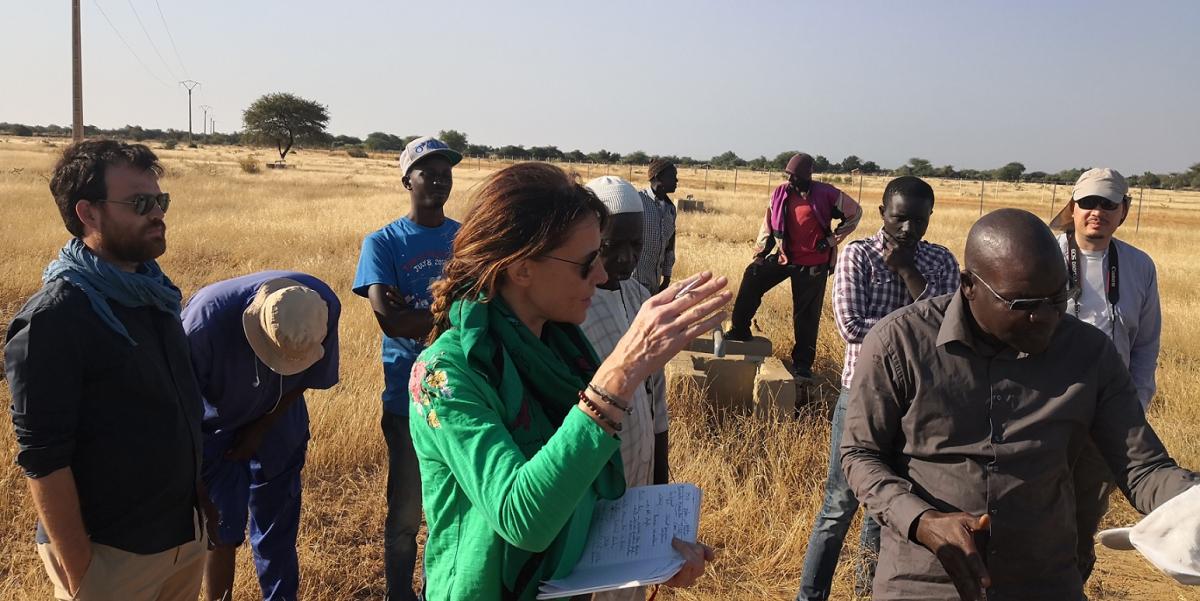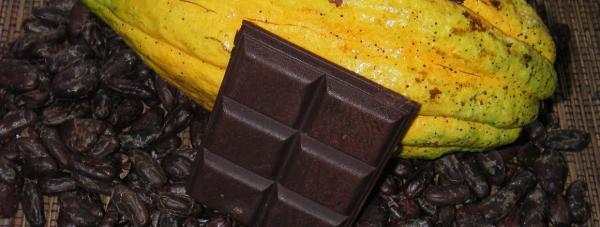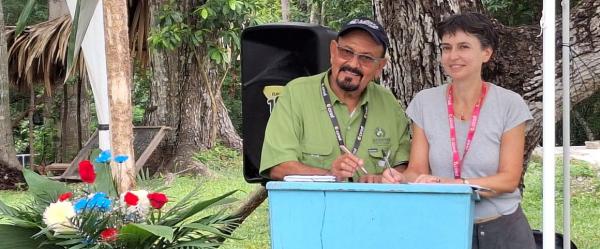Science at work 16 December 2025
- Home
- Press area
- Press releases
- Agroecology as a tool for global health and sustainable development
Launch of the Health & Territories project: Health, a development lever within the agroecological transition
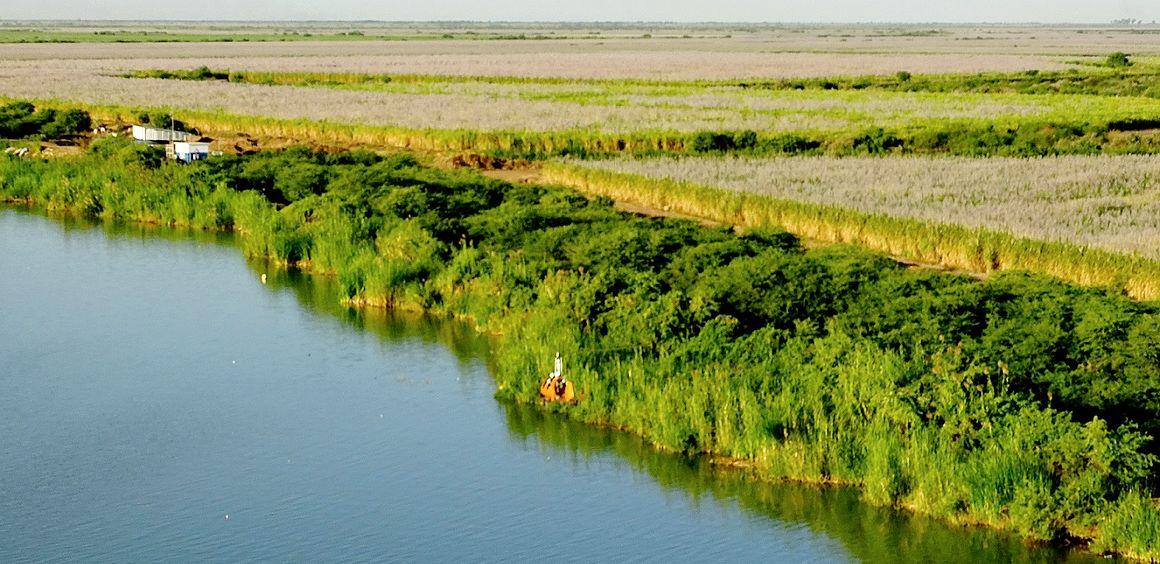
Lake Guiers, Senegal © JDC 2019
Zoonoses (animal diseases that can be transmitted to humans), antibiotic resistance and environmental pollution are all causing serious public health problems at the global level. Many of these problems are linked to agricultural production systems. Can the agroecological transition of territories help to resolve them? This is the central question of the Health & Territories project, which is being launched at several sites in Senegal, Benin, Laos and Cambodia. Coordinated by CIRAD, the project is co-financed by AFD and the European Union DeSIRA programme - Development Smart Innovation through Research in Agriculture.
The official launch took place on September 27 in Saly, Senegal. In keeping with the collaborative spirit of the project, the launch opened with a round table moderated by Mariam Sow of DyTAES on the theme of the project - One Health, Agroecology and Public Policies -, with Abdoulaye Dème, representing the Rector of UGB; Astou Camara, representing the Director of ISRA; Mamadou Demba Sall, representing the Head of the Lac de Guiers delegation - SAED; Christophe Cambier, representing IRD; and Sylvie Lewicki, CIRAD Regional Director for West Africa - Dry Zone.
Health, a development lever within the agroecological transition
The concept of territorial health is the keystone of the Health & Territories project. According to Aurélie Binot, a researcher in anthropology and agronomy at CIRAD and developer of the project, “this goes beyond environmental, plant, animal or human health, which are all linked by the One Health concept. For a territory to enjoy lasting local development and social peace, it is essential to consider not only overall health, but also the health quality of agricultural products”.
The quality of agricultural products is dependent on production systems and supply chains, and the Health & Territories project team has therefore focused on agroecology. “This is a way of producing that can be adapted according to the territory, and ensures the sustainability of agricultural production while protecting territorial health in all its dimensions”, says CIRAD’s Raphaël Duboz, coordinator of the project.
For five years, the actors involved in the project will thus strive to improve the standard of living and the wellbeing of local communities through agroecological transitions that are adapted to the different territories.
Living labs: the emergence of new forums for citizen consultation
In the first stage, “all of the local actors need to agree on a common and shared definition of health”, says Aurélie Binot. “This varies according to the territory, but also according to economic, social and environmental issues. The first thing that needs to be established is therefore a dialogue between sectors that are not in the habit of exchanging views”.
To achieve this, the Health & Territories project will set up living labs at the different study sites in Senegal, Benin, Laos and Cambodia. Living labs are discussion forums that represent all of the viewpoints of the actors in a territory. They will bring together actors who would otherwise never have met, and who will learn to make decisions together based on joint experiments.
In Senegal, for example, in the Lake Guiers region, several actors are participating separately in the health of the territory. Aurélie Binot explains how their activities may sometimes clash.
“First of all, there are the sugarcane companies, which see themselves as a strong hub of employment in a remote territory. These agro-industries will, for example, offer health services to their employees. However, they will also use pesticides, which can pollute soil and water.
In the same territory, there are also organic livestock and vegetable farmers, who are in permanent contact with the water from the lake, through irrigation channels and watering points for cattle. Due to hydraulic infrastructure works upstream, this water can potentially carry parasites that are a threat to the health of people and their animals, and even of vegetable crops."
For the team of the ambitious Health & Territories project, these different activities must be discussed with all of the actors concerned in order to improve the health of a territory in a sustainable manner. “This project involves support through research, in which knowledge and experiments will be produced and mobilized jointly by all of the actors in a territory”, says Raphaël Duboz. “Indicators that make sense to the local actors will be developed and will be used to characterize the state of health of a territory and to monitor the impact of agricultural activities.” Several agroecological methods will be proposed and tested, with only one certainty: public health and agricultural dynamics must be addressed simultaneously.

























